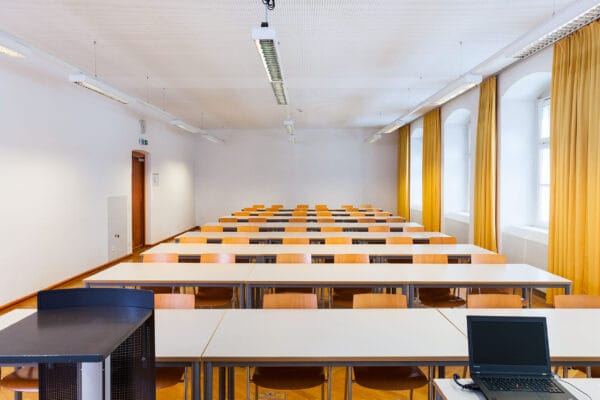
NAME:
Theologie – SR VI
BUILDING:
Theologie
FLOOR:
1
TYPE:
Seminar Room
CAPACITY:
48
ACCESS:
Only Participants
EQUIPMENT:
Beamer, PC, WLAN (Eduroam), Overhead, Flipchart, Blackboard, Handicapped Accessible, LAN, Speaker Desk
The environmental crisis represents a societal challenge, heavily impacting both physical and psychological well being and soliciting a wide range of eco-emotions (complex feelings associated with environmental change). The bidirectional relationship between some eco-emotions (e.g. eco-anxiety) and pessimistic visions of the future can negatively impact the individual’s sense of agency. In this respect, young people figure among the most vulnerable social groups. Current literature supports the crucial role of both science communication and eco-psychology in finding new ways to convey the urgency of addressing the climate crisis. It is believed that increased awareness of both the scientific aspects and the psychological impacts of the environmental crisis can contribute to greater resilience and active public engagement. Here, we present a workshop conducted in July 2024 involving 21 teenagers between 12 and 14 years old, from a small mountain community of the Friuli Venezia-Giulia region, Italy. The initiative was framed within the BeyondSnow project. The workshop was organized around three core moments and combined scientific education about climate change, an exploration of eco-emotions and the challenge of envisioning a more sustainable future. Firstly, the teenagers engaged in a participatory lesson through dedicated quizzes and group work. Secondly, the workshop provided a space to explore eco-emotions with a modified version of the popular “four corners game” and the use of paper silhouettes. Lastly, the workshop encouraged participants to imagine a variety of futures for their mountain community using the Design Thinking method of personas. The audience of this presentation will be invited to try some visioning and emotional exploration exercises, similar to those from the original workshop. Students experienced collaborative learning activities on the causes of the human-induced climate crisis and its effects, also on local mountainous ecosystems. The activity on eco-emotions provided an opportunity to acknowledge the range of different emotions elicited by environmental issues. The reflection on possible futures, including the evolving needs, behaviors, and expectations of the community, helped the participants to become more aware of their agency in the present, inspired by a variety of possible futures. If continued, these experiences could mitigate the effect of negative eco-emotions.
